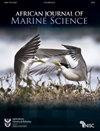用陆地蛋白替代鱼粉对日本黑曲幼鱼生长、身体状况和肠道微生物群的影响
IF 1.4
4区 生物学
Q3 MARINE & FRESHWATER BIOLOGY
引用次数: 4
摘要
在养殖的肉食性鱼类的饮食中,蛋白质来源的平衡组合可以部分取代鱼粉,从而促进鱼类的最佳健康和生产性能。在本研究中,比较了用鱼粉替代日粮(包括动物和植物蛋白质来源的不同混合物,并补充了结晶氨基酸)喂养的日本黑曲幼鱼的生长、身体状况和肠道微生物群。给鱼(15.7[SE 0.12]g鱼−1)喂食三种等氮(41%蛋白质)和等能(13kJ g−1)饮食中的一种,为期60天。喂食不含鱼粉(D0;仅含血粉和大豆蛋白源)的鱼类显示出最低的比生长率(p<0.001)。与喂食100%鱼粉(D100)(12.8〔SE 0.4〕cm)或不含鱼泥的鱼类相比,喂食50%鱼粉(D50;添加家禽粉、血粉、油菜籽粉和大豆)(13.2〔SE 0.4】cm)的鱼类的体长更长鱼粉(D0)(12.1[SE 0.08]cm)(p<0.001)。D50日粮与D100日粮在条件因子、肝体细胞指数(HSI)和饲料转化率(FCR)方面无差异;与其他处理相比,D0日粮鱼类的HSI较低,FCR较高(p<0.01)。日粮蛋白质来源不会改变这些鱼类的肠道微生物群。总之,与不更换鱼粉的日粮相比,50%的日粮鱼粉更换为家禽、血液、油菜籽和大豆加工的良好膳食平衡,改善了幼年暗曲的长度增加。本文章由计算机程序翻译,如有差异,请以英文原文为准。
The effect of fishmeal replacement with terrestrial protein sources on growth, body condition and intestinal microbiota of juvenile dusky kob Argyrosomus japonicus
A balanced combination of protein sources to partially replace fishmeal in the diets of cultured carnivorous fish can promote optimal fish health and production performance. In the present study, the growth, body condition and gut microbiota of juvenile dusky kob Argyrosomus japonicus fed fishmeal-substituted diets comprising different blends of animal and plant protein sources, with crystalline amino acid supplementation, were compared. The fish (15.7 [SE 0.12] g fish−1) were fed one of three isonitrogenous (41% protein) and isoenergetic (13 kJ g−1) diets for 60 days. Fish fed a diet with no fishmeal (D0; blood meal and soybean protein sources only) displayed the lowest specific growth rate (p < 0.001). Longer body lengths were achieved in fish fed a 50% fishmeal diet (D50; supplemented with poultry meal, bloodmeal, canola meal and soybean) (13.2 [SE 0.4] cm) compared with those fed either a 100% fishmeal diet (D100) (12.8 [SE 0.4] cm) or a diet with no fishmeal (D0) (12.1 [SE 0.08] cm) (p < 0.001). There were no differences in condition factor, hepatosomatic index (HSI) and feed conversion ratio (FCR) between fish fed diets D50 and D100; whereas fish fed diet D0 had a lower HSI and a higher FCR when compared with the other treatments (p < 0.01). The dietary protein source did not alter the gut microbiota of these fish. In conclusion, 50% replacement of dietary fishmeal with a favourable balance of meals processed from poultry, blood, canola and soybean improved length gain in juvenile dusky kob compared with those fed a diet with no fishmeal replacement.
求助全文
通过发布文献求助,成功后即可免费获取论文全文。
去求助
来源期刊

African Journal of Marine Science
生物-海洋与淡水生物学
CiteScore
2.60
自引率
16.70%
发文量
17
审稿时长
6-12 weeks
期刊介绍:
The African (formerly South African) Journal of Marine Science provides an international forum for the publication of original scientific contributions or critical reviews, involving oceanic, shelf or estuarine waters, inclusive of oceanography, studies of organisms and their habitats, and aquaculture. Papers on the conservation and management of living resources, relevant social science and governance, or new techniques, are all welcomed, as are those that integrate different disciplines. Priority will be given to rigorous, question-driven research, rather than descriptive research. Contributions from African waters, including the Southern Ocean, are particularly encouraged, although not to the exclusion of those from elsewhere that have relevance to the African context. Submissions may take the form of a paper or a short communication. The journal aims to achieve a balanced representation of subject areas but also publishes proceedings of symposia in dedicated issues, as well as guest-edited suites on thematic topics in regular issues.
 求助内容:
求助内容: 应助结果提醒方式:
应助结果提醒方式:


